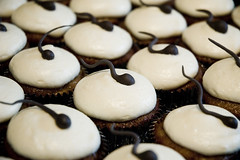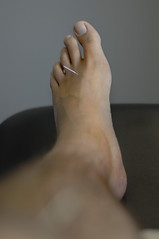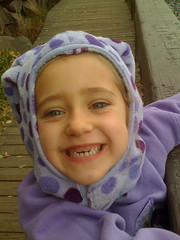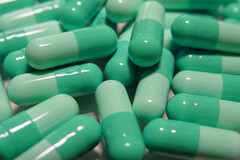 Photo by mandypantz
Photo by mandypantz
Male fertility isn't often the first thought when there is trouble with conception. However, according to statistics from the National Infertility Association (an organization also known as RESOLVE), between 35 and 40 percent of infertility problems among couples are actually due to male conditions. Some factors that are known to affect sperm production are infections, varicocele (swollen veins in the scrotom), exposure to toxins and chemicals, smoking, and radiation.
Acupuncture may help some men overcome infertility problems by improving the quality of their sperm, according to a new study. Researchers found five weeks of acupuncture treatment reduced the number of structural abnormalities in sperm and increased the overall number of normal sperm in a group of men with infertility problems. Compared to the control group, motility levels increased significantly in semen samples in the men receiving acupuncture. While median motility levels increased from 32% to 37% in the control group, they increased from 44.5% to 50% in the acupuncture group. Read the entire article on Acupuncture Today.
Practitioners who work with female fertility are also successful in treating male fertility. We treat according to the Traditional Chinese medicine diagnosis while using acupuncture points to enhance fertility. Male infertility treatments with acupuncture would include points on the lower abdomen, back, and also some in the lower extremities. A practitioner may also prescribe an herbal formula. If you are working with an fertility doctor, it's good to let them know you are also receiving acupuncture.



 On Wednesday, May 20, 2009, a volunteer from Acupuncturists without Borders (AWB) will be hosting a radio interview about veterans with PTSD and acupuncture.
On Wednesday, May 20, 2009, a volunteer from Acupuncturists without Borders (AWB) will be hosting a radio interview about veterans with PTSD and acupuncture. 







 Ba Gua from:
Ba Gua from: 








 According to
According to  Kinsey & Zander
Kinsey & Zander
 Photo by Paul: Anya says hello to Seth
Photo by Paul: Anya says hello to Seth